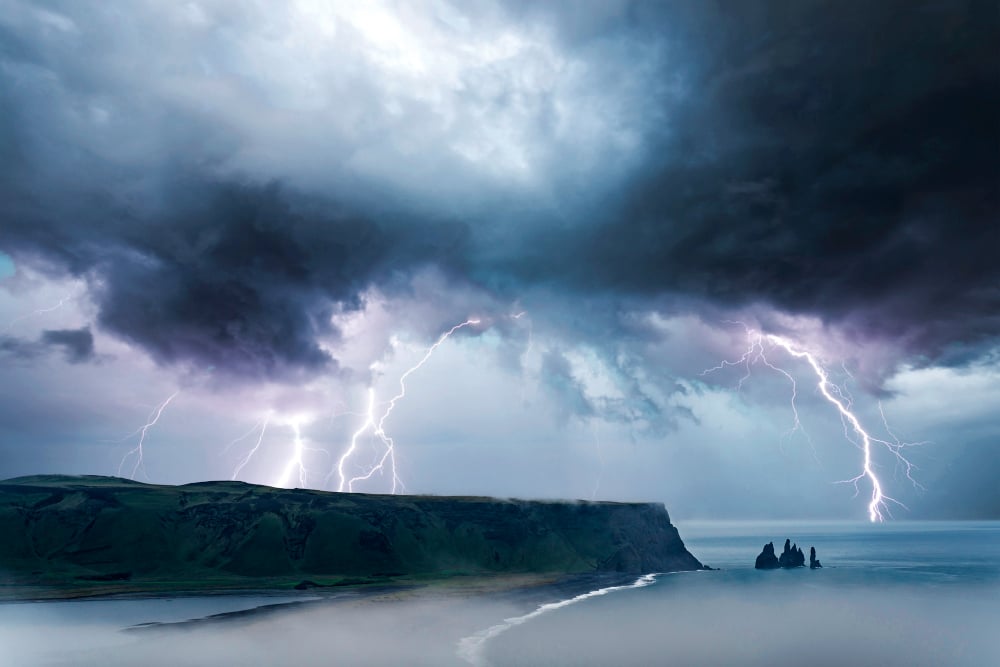
Storm Debby Brings Heavy Rainfall, Flooding to Carolinas
Table of Contents
Tropical Storm Debby is moving northward in the United States. If it maintains its current trajectory, it will soon reach Pennsylvania, as well as New York, and northern New England.
Debby was initially classified as a hurricane but was later downgraded to a strong tropical storm by the authorities. Heavy rainfall and occasional flooding characterize it, and thus, citizens should be extremely careful when it rages.
The hurricane first landed early on Monday, moving through Florida’s Big Bend coast. At that point, the National Weather Service stated that it fell into Category 1 because of its strength.
On early Thursday, the storm made a second landfall near Bulls Bay in South Carolina. According to the National Hurricane Center, it was not very strong at this point, but there is still a possibility of flooding. In the beginning, it was moving up to the East Coast, but now the mid-Atlantic and Northeast are in focus, as Debby will hit them sometime in the coming weekend.
The Miami-based Hurricane Center reported that at 11 p.m. on Thursday, the wind speed had decreased to 30 mph. The storm’s centre remained approximately 90 miles northwest of Raleigh, North Carolina, and 80 miles northeast of Charlotte, North Carolina. It was rapidly surging north-northeast, though, with the wind blowing at 26 mph.
Compared to other hurricanes, this storm is relatively mild, with wind and heavy rain that are more inconvenient than dangerous. Nevertheless, people should take all the necessary precautions to avoid any damage.
Furthermore, it’s moving slowly, which means the rain is falling for a long period of time in the territories Debby moves over. Consequently, the authorities issued a flood warning.
What Do The Meteorologists Say?
With the storm moving toward the Northeast, meteorologists think that a seaside zone farther up the East Coast will probably become its epicentre. For that to happen, it would have to move into a different air mass, thus crossing an atmospheric threshold and becoming an extratropical cyclone. It might even reach Vermont.
Tropical cyclone is a general term. It encompasses various hurricanes, tropical storms, and depressions, differentiated based on their strength.
While the term – cyclone causes panic when we hear it, an extratropical one isn’t necessarily as strong as a tropical storm. It might be much weaker. Moreover, such cyclones differ from tropical ones, they are cold at the core. As a result, they can’t grow into a hurricane very quickly. This is good news, at least.
On Thursday morning, forecasters stated that the timing of the storm’s peak surge and high tide would determine how much destruction the inundation would bring, especially if these two coincide.
Expect the Heavy Rainfall As the Storm Surges
Forecasts indicate that the risk of flooding remains as the tropical depression persists. On Thursday, the hurricane centre stated that Debby will likely generate 3 to 6 inches of rainfall, with some portions of southeastern North Carolina taking the brunt of it. Consequently, the maximum storm total might reach as high as 15 inches.
In addition, some portions of eastern South Carolina will see more rainfall of 1 to 3 inches. That means the total amounts will hit as high as 20 to 25 inches. Meteorologists think that South Carolina and southeast North Carolina will suffer the most, with flooding also expected in eastern regions through Friday.
They also added that there’s a possibility of the water reaching 3 to 7 inches, with some local amounts hitting 10 inches from central North Carolina northward across some of Virginia. That will happen today, so people in these regions should remain extra vigilant to stay safe. Analysts expect both flash and urban flooding, and some of them also pointed out the possibility of river flooding.
Meanwhile, the hurricane centre announced that water might reach 2 to 4 inches through Friday night, with local amounts hitting 6 inches in some parts of Maryland’s north regions, including Upstate New York and Vermont.
Some severe thunderstorms are also a possibility at the end of the depression. After all, they often accompany downpours. The Storms Prediction Center has recently added an area in western Massachusetts and western Connecticut to the regions in danger, citing a 2% tornado risk. The latter often follow tropical storms.
However, risk in these areas is low compared to the formerly mentioned regions. In fact, some meteorologists forecast fine weather for the weekend in these territories. But tropical storms and hurricanes are unpredictable in their nature.
Which course will Debby take?
The remnants of the storm will pass through near northwest territories later today. As a result, the First Alert Weather team has recently issued a warning. A Red Alert will be active for most of the day.
In New York, the north and west of the city will see the heaviest rain, with these regions accumulating approximately 1 to 3 inches of rainfall. There’s a possibility of scattered flash flooding, mostly in inland areas.
However, forecasters are also warning about the winds, which will likely reach the peak on Saturday evening. The current estimate is that they will blow at 35 to 45+ miles per hour.
This means the wind might uproot some trees and break branches, especially on the coast and east part of the city. The good news is that, thus far, there is less danger of coastal flooding. But rip currents are another case, so you should stay away from the atlantic ocean.
Currents will remain strong today, especially across the Jersey shore and south-facing New York beaches. The officials warn that the city should prepare as Debby heads in that direction now. In Hempstead, New York, people have already tied up their boats on Wednesday at several beaches.
Hempstead Town Supervisor Don Clavin stated that they will probably get flooded, and some of the trees will also break and fall. Moreover, in low lying areas, flooding will be more dangerous. The city has already weathered them in the past.
How To Prepare for Debby?
Authorities advise citizens to avoid driving in the rain and to keep their devices charged in case of a power outage. In addition, people should remain vigilant and follow news about the storm’s trajectory, strength, timing, and location.
Furthermore, the officials warn to clean out drains and gutters to avoid severe flooding and move or secure any loose outdoor furniture, or other items. Call emergency services if you see any downed trees (311). Be extra careful if you are in an area that floods typically.
Take pictures of important documents, such as your insurance card and other important numbers. If you have neighbours who might require assistance, check on them when it’s safe to do so. This includes families with children or infants, older adults, or people with disabilities.
Report any sewer backups or water emergencies immediately to the Sewer Emergency Line or your water company. Furthermore, you should report blocked or clogged storm drains or any other issues related to flood or water service.
And most importantly, stay tuned for further information!


